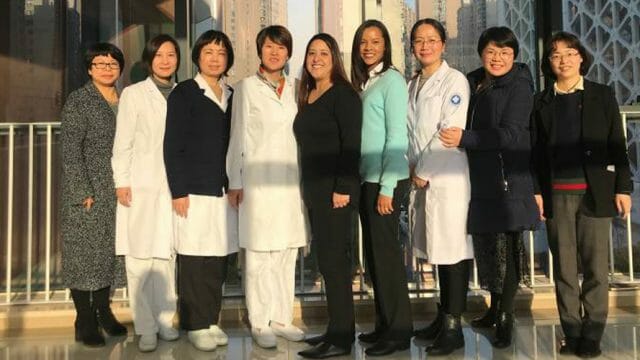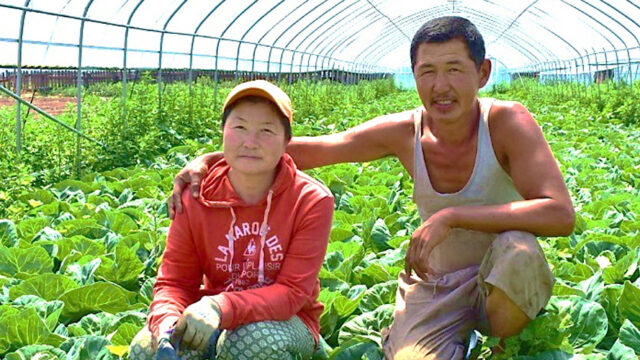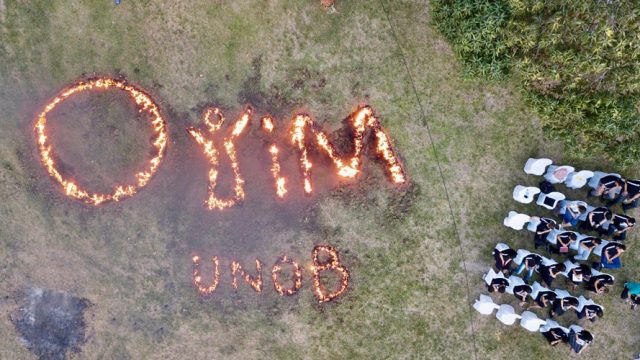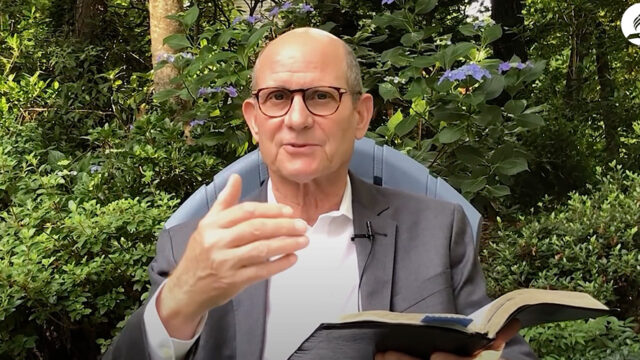Among hundreds of people sick and dead, a high-risk retirement home managed by the Seventh-day Adventist Church in Italy has managed to stay […]
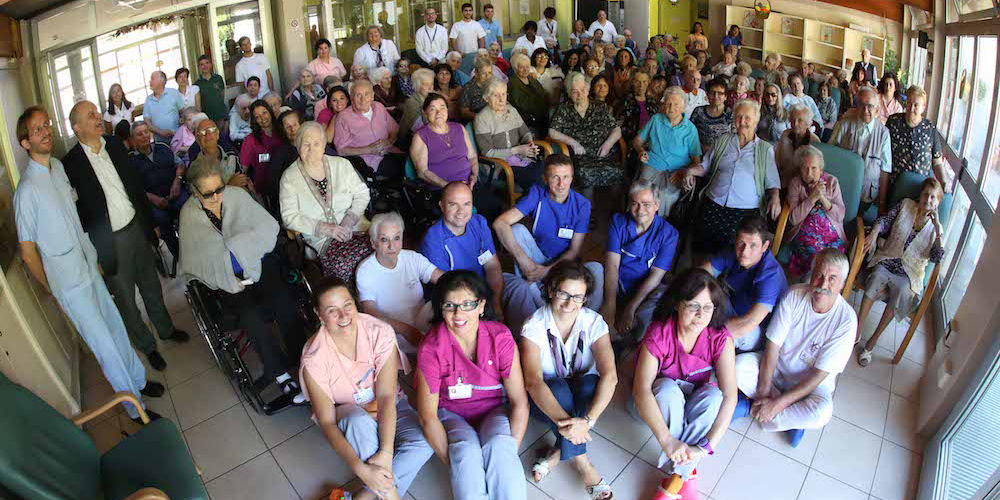
Among hundreds of people sick and dead, a high-risk retirement home managed by the Seventh-day Adventist Church in Italy has managed to stay COVID-19-free during the current pandemic. Casa Mia, a facility that is home to nearly 90 seniors in Forlì, in Emilia-Romagna, effectively walled off the novel coronavirus and protected residents, staff, and volunteers, acknowledged its director, Fabian Nikolaus.
“So far, we have had zero suspected cases and zero positive cases of COVID-19,” Nikolaus wrote in a letter sent to the residents’ families. “This includes not only our senior residents but our staff. We thank God first, but also the high sense of responsibility every Casa Mia stakeholder has shown.”
An Early Start
In early February 2020, COVID-19 was still a problem in faraway China and didn’t seem a big issue for Italy. According to major media outlets, the first case was recorded in Italy only on February 21. A week earlier, however, Nikolaus had decided to put Casa Mia on lockdown.
“We were pressured by the local government not to do it,” Nikolaus recalled. “They questioned the measure, telling us we were not authorized to go into lockdown.” By the time the local government changed its course and decided to go into lockdown on March 4, it was too late — the virus was already inside most retirement homes.
“I can only say that God inspired us to do what we did,” Nikolaus acknowledged. “As we stayed safe inside, we could sense outside the situation was chaotic. You could hear the ambulance sirens going off nonstop.”
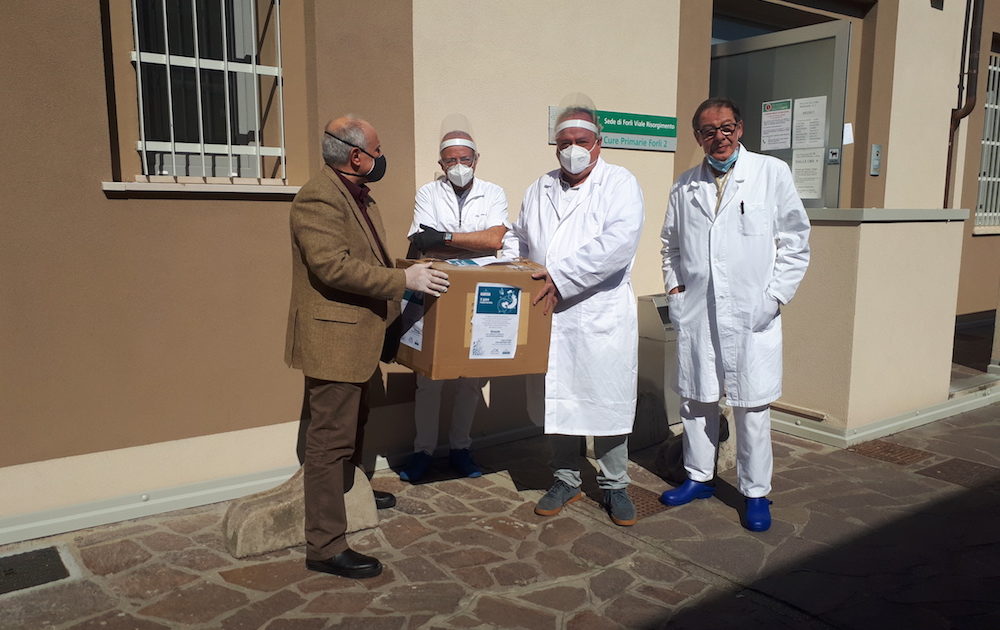
Casa Mia soon became an exception across the city (pop. 120,000), which boasts 15 senior homes with about 1,200 beds. As the virus got inside the facilities where fragile people resided, it had a devastating effect, according to local news outlets. Many could not be saved, but seniors and staff at the Adventist-managed facility stayed safe.
“The hygiene, disinfection, and even confinement measures that the staff of Casa Mia applied to minimize the chances that the virus can reach the people are stringent,” Nikolaus said. “Some of these measures can be inconvenient for interpersonal relationships between patients and family members. But even though at first some thought those measures seemed an exaggeration, we had the wellbeing of our seniors as our priority.”
Investment in Equipment
Casa Mia has invested in personal protection equipment to make sure residents and staff were safe. “We also received donations from private and public organizations,” Nikolaus said. Donations included the support of the city government. Mayor Gian Luca Zattini paid a brief visit on March 30 to show his support and deliver 250 masks for residents and staff.
The retirement home also invested in tablets so every resident could connect with family. Volunteers, who hail from several countries and can’t go back home, were in charge of providing the technological know-how so seniors could talk and see their loved ones.
“We know retirement homes will be among the last institutions go back to a pre-COVID-19 status, so we are planning for the long run,” Nikolaus said. “And we keep working to the best of our abilities to protect our residents and staff.”
Adventists Support the Community
The Seventh-day Adventist Church in Italy has not stayed idle during the pandemic. In early April, through its social work network, the church managed to purchase 5,000 N95 masks from Hong Kong. Masks were distributed primarily to healthcare workers across the city.
“We understood right away that it was essential to support and protect our health practitioners,” said Adventist Social Work coordinator Giuseppe Cupertino. “Our health system rests on their shoulders.”
Marco Ragazzini, secretary of the Italian General Practitioners Federation in the province, accepted the protective equipment on behalf of his colleagues.
“I want to thank you because you were the first to show such sensitivity,” Ragazzini told Cupertino. “I thank you from the bottom of my heart.”
In other Italian provinces, the Adventist Church has purchased at least 15,000 more masks to be distributed among physicians.
“As healthcare workers find out, they are calling us to see whether we can also support them,” Cupertino said. “We’ll see what we can do.”
Cupertino explained that among other initiatives, the Adventist Church is taking part in a groceries home delivery service through the Adventist Development and Relief Agency (ADRA) and the nearby city of Cesena. The church has also activated a phone hotline to provide free psychological support to people suffering because of the quarantine.
Spiritual Support
Back in Forlì, Nikolaus said they long to go back to pre-COVID-19 times. He shared how, in normal times, the residents, 90 percent of whom are not members of the Adventist Church, appreciate the support they receive from the staff. A corridor connects the facility with a local Adventist congregation, and many of the residents often attend Saturday (Sabbath) services.
“Many residents love attending church,” Nikolaus shared. “They say, ‘It’s Saturday — time to go to mass!’”
Nikolaus added that his team will keep doing the best they can to stay safe as they wait for better days. He shared how, in late April, the 72 staff and volunteers working at Casa Mia underwent serological tests. Every single test came back negative, he emphasized, a fact that gives him hope for the future.
“We are confident that God will continue to protect us and enlighten us in making wise, timely, and correct decisions,” he said.
With additional information from Hope Media Italia.



